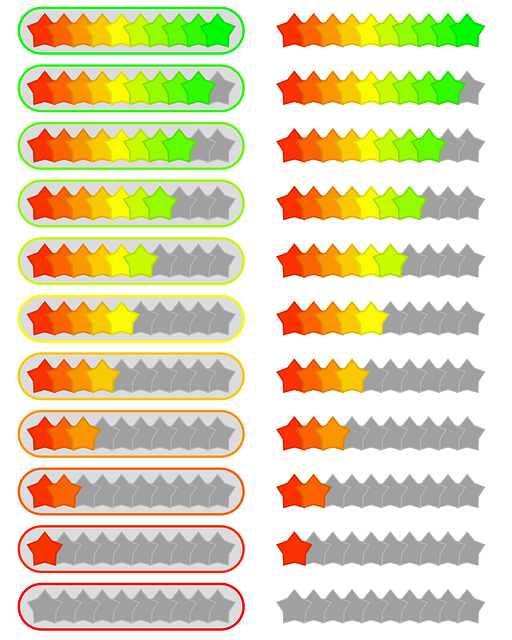To improve organic search rankings, create high-quality content that incorporates relevant keywords naturally, optimize on-page elements like titles, headings, and meta descriptions, ensure mobile-friendliness, and build a robust backlink profile from reputable sources. Regularly update content, engage audiences, and leverage analytics data to refine SEO strategies based on user interest and behavior. Implement strategic keyword research using tools like Google Keyword Planner, focus on long-tail keywords for reduced competition, and integrate multimedia elements for enhanced user experience. Measure key metrics like CTRs, average position, dwell time, and adjust strategies accordingly to stay competitive in organic search results.
In today’s digital landscape, improving organic search rankings is paramount for online visibility. This comprehensive guide delves into the intricacies of fast organic search results, equipping you with essential tools and strategies. From understanding the fundamentals of organic search to mastering keyword research, creating compelling content, optimizing on-page elements, building quality backlinks, and analyzing performance—each step plays a crucial role in enhancing your site’s rankings. By implementing these tactics, you can significantly boost your online presence and attract more organic traffic.
Understanding Organic Search: The Basics

Understanding organic search involves grasping how search engines like Google, Bing, and Yahoo determine which websites appear in their non-paid or ‘organic’ search results. It’s a complex process that considers numerous factors to deliver relevant content to users searching for specific information, products, or services. At its core, improving organic search rankings hinges on creating high-quality, keyword-rich content that satisfies user intent and aligns with the context of popular search terms.
This means optimizing your website’s structure, content, and metadata to make it appealing to both search engine algorithms and human visitors. Techniques include conducting thorough keyword research to identify relevant terms used by your target audience, implementing these keywords naturally throughout your site’s copy, enhancing page titles and meta descriptions for clarity and clickability, and ensuring your site is mobile-friendly and loads quickly. By focusing on these fundamentals, you can significantly improve your website’s visibility in organic search results.
Factors Influencing Organic Rankings

Improving organic search rankings is a complex endeavor influenced by various factors that constantly evolve. Google and other search engines use sophisticated algorithms to determine which websites appear at the top of search results pages (SERPs). Key elements include high-quality, relevant content that satisfies user intent; a robust and mobile-friendly website architecture; effective on-page SEO practices, such as strategic keyword placement and meta tags; and a strong backlink profile from authoritative sources. Additionally, site speed, user engagement metrics like bounce rate and time spent on page, and security (HTTPS encryption) also play significant roles in ranking algorithms.
To stay ahead of the curve, content creators and website owners must stay informed about these factors and adapt their strategies accordingly. Regularly updating content to keep it fresh and relevant, optimizing site structure for better navigation and indexing, and engaging with audiences through social media and other channels can all contribute to improving organic search rankings. Moreover, monitoring analytics data allows for identifying areas of improvement and making data-driven decisions that enhance the overall user experience.
Keyword Research for Optimal Results

Keyword research is a cornerstone in achieving fast organic search results. It involves understanding your target audience and identifying relevant, high-volume keywords that drive traffic to your website. By utilizing tools like Google Keyword Planner or SEMrush, you can uncover keywords with low competition yet high search intent, positioning your site to capture valuable rankings.
Focusing on long-tail keywords—more specific, longer phrases—can significantly improve organic search rankings. These keywords have less competition and often reflect a user’s exact search query, leading to higher click-through rates and better conversion rates. Incorporating these strategic keywords into your content ensures that it resonates with search engines and users alike, boosting your site’s visibility and driving more relevant traffic.
Creating High-Quality Content

Creating high-quality content is paramount in enhancing your site’s improve organic search rankings. It involves producing relevant, informative, and engaging material that meets the needs and expectations of your target audience. Such content not only attracts visitors but also encourages them to stay longer on your page, thereby reducing bounce rates and increasing time spent on site, which are all positive signals to search engines.
Focusing on consistent publishing of unique, well-researched, and optimized content is key. Incorporate relevant keywords naturally throughout your text while ensuring readability remains a top priority. Additionally, leveraging multimedia elements like images and videos can significantly enrich user experience, making your content more appealing and accessible.
Optimizing On-Page Elements

To improve organic search rankings, optimizing on-page elements is a crucial step. This involves enhancing key aspects of your web pages to make them more relevant and engaging for both users and search engines. Start by conducting thorough keyword research to identify terms that accurately describe your content and have high search volume. Incorporate these keywords naturally into your page titles, headings, meta descriptions, and body copy. Additionally, ensure your website has a clean and intuitive structure with proper internal linking to help search engines understand the hierarchy of your content.
Visual elements like images and videos also play a significant role in on-page optimization. Optimize these by adding descriptive file names, alt tags, and captions that include relevant keywords. Mobile responsiveness is another critical factor; make sure your pages are optimized for various devices and screen sizes to provide an excellent user experience. Lastly, regular updates with fresh, high-quality content will not only satisfy users but also signal to search engines that your site remains active and authoritative in its niche.
Building Quality Backlinks

Building high-quality backlinks is a cornerstone in improving organic search rankings. These links act as votes of confidence from other reputable websites, telling search engines that your content is valuable and worthy of reference. When acquiring backlinks, focus on securing them from authoritative and relevant sources within your niche. This could include industry leaders, well-regarded blogs, or trusted news outlets. A strategic approach involves creating engaging content that naturally attracts these links, such as in-depth research pieces, informative infographics, or expert interviews. By consistently producing high-quality material, you increase the likelihood of earning backlinks organically.
Moreover, building backlinks should be an ongoing process. Regularly audit your existing backlink profile to identify any low-quality or toxic links that could negatively impact your rankings. Remove these and replace them with newer, higher-quality alternatives. Additionally, consider leveraging guest blogging opportunities, which allow you to contribute content to other websites in exchange for a link back to your site. This not only boosts your backlink profile but also helps establish your brand’s authority within the industry.
Measuring and Analyzing Performance

Measuring and analyzing performance is a vital step in improving organic search rankings. Key metrics to track include click-through rates (CTRs), which gauge user interest in your content, and average position, reflecting how high up your pages appear in search results. By regularly monitoring these figures, you can identify trends and areas for improvement. For instance, low CTRs might indicate a need for better keyword targeting or more engaging content.
Additionally, keeping an eye on dwell time—the average amount of time users spend interacting with your pages—provides insights into content quality and relevance. Analyzing this data alongside search analytics tools can help you refine your SEO strategy, ensuring that your content not only attracts but also retains the attention of your target audience, ultimately driving higher rankings in organic search results.
